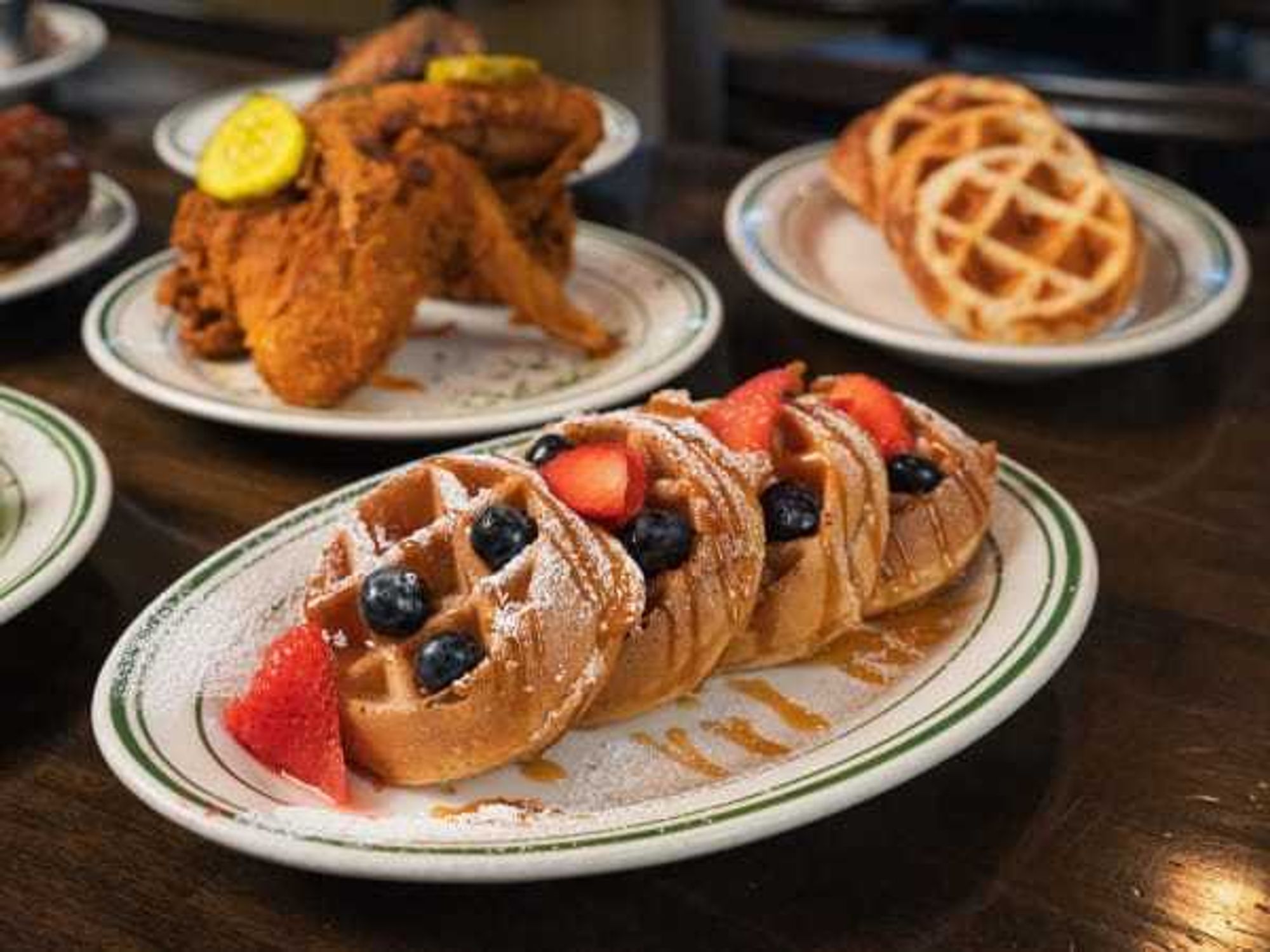Great ape expectations
Primate pioneer Jane Goodall regales Houston with chimp tales and a plea tothink first
 Dr. Jane Goodall has lived a remarkable life of research and responsibility,which she shared with a rapt audience to the rafters at the Wortham TheaterCenter on Wednesday evening.Photo courtesy of Jane Goodall Institute
Dr. Jane Goodall has lived a remarkable life of research and responsibility,which she shared with a rapt audience to the rafters at the Wortham TheaterCenter on Wednesday evening.Photo courtesy of Jane Goodall Institute Longtime friends Jane Goodall and Houston Zoo director Rick Barongi posetogether during her visit to the African Forest chimpanzee exhibit.
Longtime friends Jane Goodall and Houston Zoo director Rick Barongi posetogether during her visit to the African Forest chimpanzee exhibit.
When you hear the words "epitome of hope," "role model" and "hero" strung together in rapid succession, the names of only a few select individuals could feasibly follow.
Luckily, one such Goliath of admirable achievement was on hand Wednesday night at the Wortham Theater Center, thanks to The Progressive Forum — the one, the only, the Dr. Jane Goodall, the famed pioneer of chimpanzee research at Gombe Stream National Park in Tanzania, and a United Nations Messenger of Peace.
Although Goodall took the podium half an hour later than expected, this modern day fairy godmother — replete with cape and a tinkling accented voice — wasted no time promptly acknowledging those in the balcony with "the distance call of the chimpanzees," which Goodall referred to as "the most evocative greeting."
She saved the "the close-up greeting between two chimps" for Houston Zoo director Rick Barongi, Goodall's friend of almost 20 years, who introduced her. "We're just greeting, not mating, right?" Barongi retorted.
Of course, it's no surprise to anyone that Goodall would be so fluent in chimpanzeespeak. Starting at the ripe age of 26, she officially began her lifelong commitment to studying and understanding the cheeky primate.
But the obsession actually percolated much earlier than that. "I found Tarzan of the Apes at age 10, and that was it — I was in love," she said. "Then he married that other stupid, wimpy Jane, and I knew I'd be a better mate."
Over half a century later — 2010 marked the 50th anniversary of Jane Goodall research — Goodall admits that she discovered much more in the forests of Gombe Stream in what is now Tanzania than a lust for a beefcake in a tattered tunic. "I was at Gombe because I was fascinated by animal behavior," Goodall recalled. "It's amazing how like us chimps are ... or how we're like them, it doesn't matter."
With the breakthrough fueled by David Greybeard, the first chimpanzee ever observed using objects as tools, Goodall came to understand, "Traits we thought were exclusive to humans weren't."
Chimpanzees showed affection, exhibited "dark sides" of their personalities, demonstrated altruism and experienced supportive, familial relationships — all as a result of having and feeling emotions, just like humans. "When we do things, we mean them. They do, too."
In recent years, Goodall has since left the research field in favor of directing her energies to advocacy. "Chimpanzees lead the way — they're like ambassadors, showing us how arrogant we've been," Goodall said. "I began to learn more about what we were doing to the beautiful planet than I wanted to learn."
But Goodall has never been one to sit idly by with knowledge bubbling beneath her. "I wanted to encourage people to spend a little time each day thinking about the consequences of the choices they make."
The Jane Goodall Institute, founded in 1977, not only continues her Gombe research, but establishes innovative, community-centered conservation and development programs in Africa, like Roots & Shoots. "How did we come to dominate the planet? It was our brains. So how come we're destroying it?" Goodall posited. "We compromised the future of our youth, but it's not true there's nothing we can do about it."
With convictions so solid and inspiration so profound, it's hard to believe Goodall hailed from humble, poverty-stricken origins. When her mates went off to university, she stayed behind, waiting tables and applying to secretary school, as there was no money to continue her education past secondary school. "My mother always nurtured my scientific curiosity of animals," Goodall remembered. "She always said that if you really want something, you work hard and eventually, you'll find a way."
And indeed, Goodall found her way. A fateful invitation to visit Kenya at age 23 turned into a pivotal opportunity to meet and work with celebrated paleoanthropologist Dr. Louis Leakey. Her work with Leakey eventually landed her in the Ph.D. program at Cambridge — only the eighth person ever to be admitted without a college degree.
"They told me to stop dreaming about that 'Africa nonsense,' " she said. "But life is an effort to fly a little higher, and reach a goal that's a little beyond our reach."
If you ask us, Jane Goodall's done a lot more than flying in her incredible lifetime — she's been soaring full speed ahead.

 Grand Lux Cafe is known for its baked-to-order desserts. Grand Lux Cafe/Facebook
Grand Lux Cafe is known for its baked-to-order desserts. Grand Lux Cafe/Facebook